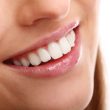There are a lot of reasons why a movie theater may be closing. One of the biggest reasons is the loss of audience. With the advent of streaming platforms, movie theaters have lost their ability to draw large crowds. Another reason is COVID-19. In this article, we’ll discuss the possible alternatives to movie theaters. And we’ll look at COVID’s impact on the industry. After reading this article, you’ll be better prepared to decide whether or not to close your local theater.
Alternatives to movie theaters
There are several alternatives to movie theaters. Movie studios have been working to find ways to make their movies more accessible to a wider audience, and many have started reorganizing around streaming. Disney and WarnerMedia have been shifting to this new model and releasing all new movies simultaneously. Warner Bros., owned by WarnerMedia, is cutting its theatrical window from 75 days to 17 days. The movie company can then debut its movies on digital-rental platforms.
Private events and streaming are other options. Movie theaters have also started experimenting with alternative content. Some have added interactive sports events, virtual games, or even virtual training exercises. The Covid-19 outbreak has also shook up the movie theater industry, leading many owners to reimagine how they can use their space. The industry is experimenting with other ways to stay relevant in a time of increasing digital content consumption. In the future, more theaters will be able to adapt to the changes in the way audiences watch movies.
Loss of audience at movie theaters
A recent study has found that the moviegoing experience is not as popular as it once was. Approximately 61% of Americans are likely to skip a moviegoing experience by 2021, according to COVID-19. The low turnout is attributed in part to the proliferation of streaming services. However, the problem may also have its origins in the decline of theater attendance in general. To understand the situation, it is necessary to look at how moviegoing has changed.
In a recent study, research companies surveyed 2,528 moviegoers. While 51 percent of respondents said they had purchased tickets in the past year, those who went only a few times a year were significantly less likely to purchase a ticket. This may be due to the introduction of rewards programs from movie chains, which enticed ticket buyers. It also found that moviegoers who used to frequent theaters are less likely to purchase tickets, and many of these people are white men in their 30s. These older moviegoers may be forever gone, however.
Impact of streaming platforms
The pandemic has accelerated the digital transformation of media, especially in the movies and television industry. Stay-at-home audiences have driven the growth of streaming services, with subscriptions to streaming services expected to increase 50% by 2020. The recent Covid-19 pandemic has hit theaters especially hard, reducing attendance rates and increasing at-home movie popularity. The pandemic also has increased the number of streaming subscribers, which has increased by 50% in just one year. In the wake of the pandemic, theaters are now reevaluating their future, and ensuring that they remain competitive.
The impact of streaming services on movie theaters is still being studied. The impact of streaming services on cinema attendance is still a controversial subject, but many industry experts see the benefits of the new technologies. While streaming services have been a great source of new content, movie theaters have lost audience focus and attention. According to a study by the IFOP, by the end of May 2020, 62% of U.S. adults will subscribe to streaming services. Despite the criticism, Hsu sees the positives as well.
Impact of COVID-19
In the weeks and months following COVID-19, outdoor movie venues have popped up across the country and small business owners have been forced to close down their operations. Others have reopened old drive-in theaters and built makeshift theaters in parking lots, showing old movies to make up for lost business. Meanwhile, the French authorities have relaxed strict media chronology regulations, allowing films released in November to be seen on EST and VOD platforms. But the movie theater business continues to struggle despite these changes.
The movie industry has been struggling for years, but after a decade of dire predictions, it has survived the worst and opened up despite threats of extinction. Some theaters have repositioned their business models to accommodate foreign pre-sales and attract more viewers. Others have changed their content to cater to a mass audience rather than to higher-end productions and A-list stars. Still, others are wondering whether COVID-19 will have a lasting impact on their industry.
Podobne tematy




